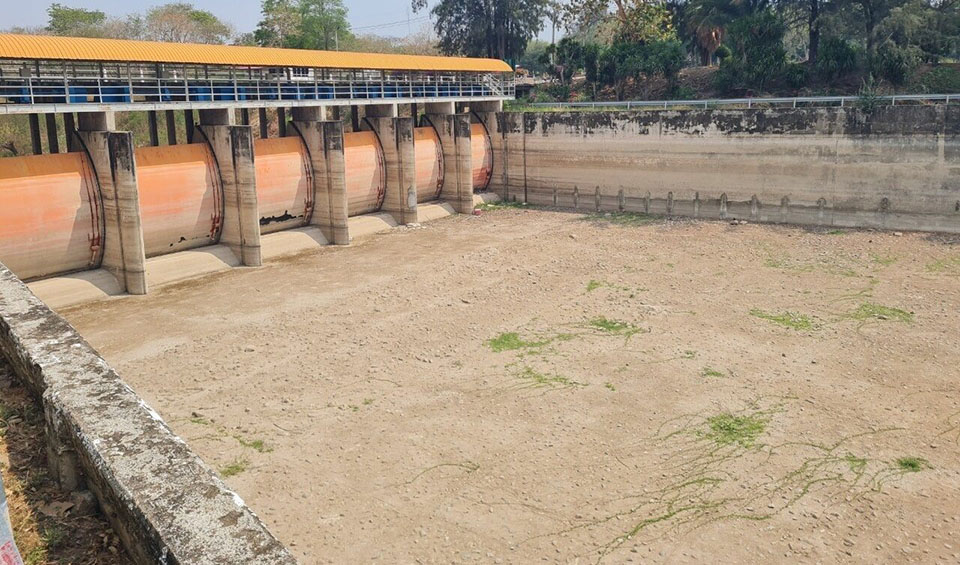
Northeastern Thailand is currently facing a drought crisis, with major dams at less than 50% capacity.
The northeastern region, especially in Nakhon Ratchasima Province is grappling with a severe drought amid extremely hot weather and anticipated rainfall shortage, affecting both agricultural activities and consumer consumption.
Farmers in Kham Thale So District, Nakhon Ratchasima Province, continue to plant off-season rice despite the water scarcity.
They rely on water pumps from the Lam Takhong Dam’s canal branch to irrigate their rice fields continuously, aiming to prevent their crops from withering.
Despite warnings from the provincial irrigation office not to cultivate off-season rice, farmers persist due to remaining water reserves and hopes for rainfall in the coming 1-2 months. However, they acknowledge the risk of crop failure if rain fails to arrive.
The Nakhon Ratchasima Irrigation Project has issued a warning to farmers against planting rice due to the Lam Takhong Dam’s water level dropping to just 32% of its capacity. This necessitates suspending water distribution from the dam to all agricultural sectors to reserve water solely for domestic consumption.
Meanwhile, residents of 80 communities relying on water from the Lam Takhong Dam for domestic use are concerned as water levels dwindle. For instance, in Pong Daeng Sub-district, Kham Thale So District, the raw water supply for household consumption in two villages is now only sufficient for a month. The drying up of the canal branch due to excessive water pumping by locals for rice cultivation has further exacerbated the water scarcity.
The Nakhon Ratchasima Irrigation Project has revealed the water situation in all 27 reservoirs in Nakhon Ratchasima. There is only 474 million cubic meters of water left, which is 39% of the total storage capacity of 1.216 billion cubic meters. As a result, water management is currently constrained, with a focus on providing water for domestic consumption and halting water distribution for agricultural purposes.
The Nakhon Ratchasima Provincial Governor has instructed all 32 districts to prepare alternative water sources for community consumption, including tapping into natural water sources and drilling wells to alleviate the ongoing crisis.
The Meteorological Department forecasts rainfall in mid-May, albeit potentially below average, urging the public to conserve water.
According to a survey of water levels in five major dams in the northeastern region, including the Ubol Ratana Dam, Lam Phao Dam, Sirindhorn Dam, Nam Un Dam, and Lam Takhong Dam, are all below 50% capacity, causing concern among residents, especially farmers worried about water shortages for agriculture. Yet, there is hope that the rainy season will replenish the dams, ensuring sufficient water for future consumption needs. (TNA)








